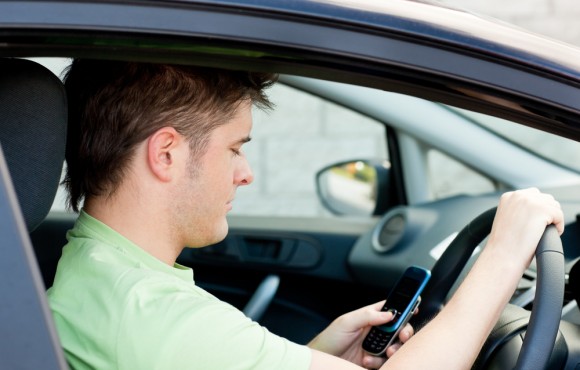State laws banning hand-held cellphone calls while driving can be effective in reducing teens’ hand-held conversations while driving, but texting bans are not effective in reducing texting while driving, according to a new study.
The study, led by the Center for Injury Research and Policy at Nationwide Children’s Hospital, examined the effectiveness of state-level cellphone laws in decreasing teens’ use of cellphones while driving. The study found differences in the effectiveness of the laws for teen drivers’ cellphone use based on the type of ban – hand-held phone conversations or texting – as well as whether the ban applied to young drivers or all drivers (universal).
Teen drivers reported 55 percent fewer hand-held phone conversations when universal hand-held calling bans were in place compared to state with no bans. Universal texting bans did not fully discourage teens from texting while driving. Bans limited to just young drivers were not effective in reducing either hand-held conversations or texting. Even with laws in place, about one-third of teen drivers are still talking on the phone and texting while driving.
“Our study shows that universal bans of hand-held cellphone calls while driving can be effective in reducing teens’ hand-held conversations while driving, but texting bans are not effective in reducing texting while driving,” said Motao Zhu, MD, MS, PhD, the study’s lead author and principal investigator in the Center for Injury Research and Policy at Nationwide Children’s Hospital. “Nearly all states ban texting while driving, however, these bans are not effective. More states should implement hand-held cellphone bans, which have been proven to discourage hand-held cellphone conversations while driving.”
The study, done in conjunction with researchers from West Virginia University and the University of Minnesota, was published in the Journal of Adolescent Health.
While the causes for the differences in laws and behavior are unknown, the authors suggest these relationships may be attributed to actual or perceived enforcement of these laws. For example, it may be easier for police to enforce universal hand-held bans because they don’t need to judge a driver’s age from afar and can more easily identify a driver holding a phone to his ear than using a phone in his lap. Drivers may also feel an officer would be able to identify them holding a phone to their ear but not texting in their lap.
While enacting and enforcing cellphone laws is one way to curtail these behaviors, it may not be the only solution. Cellphone use while driving is a complex social phenomenon, especially for teens and young adults. The study says more work needs to be done not only to develop and enforce effective laws but also to develop and implement best practices for preventing cellphone-related driving injuries, which may include behavior change programs, education, and/or interventions.
Data from this study was gathered from the 2011-2014 Traffic Safety Culture Index Surveys and individual states’ legislative archives. CIRP of The Research Institute at Nationwide Children’s Hospital works globally to reduce injury-related pediatric death and disabilities.
Topics Personal Auto
Was this article valuable?
Here are more articles you may enjoy.



 BMW Recalls Hundreds of Thousands of Cars Over Fire Risk
BMW Recalls Hundreds of Thousands of Cars Over Fire Risk  World’s Growing Civil Unrest Has an Insurance Sting
World’s Growing Civil Unrest Has an Insurance Sting  CFC Owners Said to Tap Banks for Sale, IPO of £5 Billion Insurer
CFC Owners Said to Tap Banks for Sale, IPO of £5 Billion Insurer  Judge Awards Applied Systems Preliminary Injunction Against Comulate
Judge Awards Applied Systems Preliminary Injunction Against Comulate 

